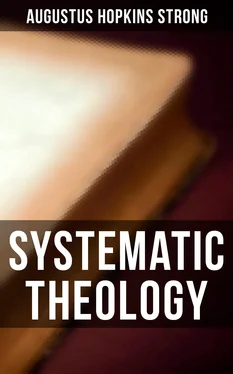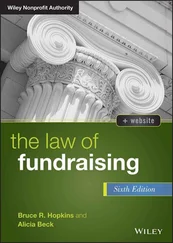Under the head of Absolute or Immanent Attributes, we make a three-fold division into Spirituality, with the attributes therein involved, namely, Life and Personality; Infinity, with the attributes therein involved, namely, Self-existence, Immutability, and Unity; and Perfection, with the attributes therein involved, namely, Truth, Love, and Holiness.
Under the head of Relative or Transitive Attributes, we make a three-fold division, according to the order of their revelation, into Attributes having relation to Time and Space, as Eternity and Immensity; Attributes having relation to Creation, as Omnipresence, Omniscience, and Omnipotence; and Attributes having relation to Moral Beings, as Veracity and Faithfulness, or Transitive Truth; Mercy and Goodness, or Transitive Love; and Justice and Righteousness, or Transitive Holiness.
This classification may be better understood from the following schedule:
1. Absolute or Immanent Attributes:
A. Spirituality, involving (a) Life, (b) Personality.
B. Infinity, involving (a) Self-existence, (b) Immutability, (c) Unity.
C. Perfection, involving (a) Truth, (b) Love, (c) Holiness.
2. Relative or Transitive Attributes:
A. Related to Time and Space—(a) Eternity, (b) Immensity.
B. Related to Creation—(a) Omnipresence, (b) Omniscience, (c) Omnipotence.
C. Related to Moral Beings—(a) Veracity, (b) Mercy, (c) Justice.
It will be observed, upon examination of the preceding schedule, that our classification presents God first as Spirit, then as the infinite Spirit, and finally as the perfect Spirit. This accords with our definition of the term God (see page 52). It also corresponds with the order in which the attributes commonly present themselves to the human mind. Our first thought of God is that of mere Spirit, mysterious and undefined, over against our own spirits. Our next thought is that of God's greatness; the quantitative element suggests itself; his natural attributes rise before us; we recognize him as the infinite One. Finally comes the qualitative element; our moral natures recognize a moral God; over against our error, selfishness and impurity, we perceive his absolute perfection.
It should also be observed that this moral perfection, as it is an immanent attribute, involves relation of God to himself. Truth, love and holiness, as they respectively imply an exercise in God of intellect, affection and will, may be conceived of as God's self-knowing, God's self-loving, and God's self-willing. The significance of this will appear more fully in the discussion of the separate attributes.
Notice the distinction between absolute and relative, between immanent and transitive, attributes. Absolute = existing in no necessary relation to things outside of God. Relative = existing in such relation. Immanent = “remaining within, limited to, God's own nature in their activity and effect, inherent and indwelling, internal and subjective—opposed to emanent or transitive.” Transitive = having an object outside of God himself. We speak of transitive verbs, and we mean verbs that are followed by an object. God's transitive attributes are so called, because they respect and affect things and beings outside of God.
The aim of this classification into Absolute and Relative Attributes is to make plain the divine self-sufficiency. Creation is not a necessity, for there is a πλήρωμα in God ( Col. 1:19 ), even before he makes the world or becomes incarnate. And πλήρωμα is not “the filling material,” nor “the vessel filled,” but “that which is complete in itself,”or, in other words, “plenitude,” “fulness,” “totality,” “abundance.” The whole universe is but a drop of dew upon the fringe of God's garment, or a breath exhaled from his mouth. He could create a universe a hundred times as great. Nature is but the symbol of God. The tides of life that ebb and flow on the far shores of the universe are only faint expressions of his life. The Immanent Attributes show us how completely matters of grace are Creation and Redemption, and how unspeakable is the condescension of him who took our humanity and humbled himself to the death of the Cross. Ps. 8:3, 4—“When I consider thy heavens … what is man that thou art mindful of him?” 113:5, 6—“Who is like unto Jehovah our God, that hath his seat on high, that humbleth himself?” Phil. 2:6, 7—“Who, existing in the form of God, … emptied himself, taking the form of a servant.”
Ladd, Theory of Reality, 69—“I know that I am, because, as the basis of all discriminations as to what I am, and as the core of all such self-knowledge, I immediately know myself as will ” So as to the non-ego, “that things actually are is a factor in my knowledge of them which springs from the root of an experience with myself as a will , at once active and inhibited, as an agent and yet opposed by another.” The ego and the non-ego as well are fundamentally and essentially will . “Matter must be, per se, Force. But this is … to be a Will” (439). We know nothing of the atom apart from its force (442). Ladd quotes from G. E. Bailey: “The life-principle, varying only in degree, is omnipresent. There is but one indivisible and absolute Omniscience and Intelligence, and this thrills through every atom of the whole Cosmos” (446). “Science has only made the Substrate of material things more and more completely self-like”(449). Spirit is the true and essential Being of what is called Nature (472). “The ultimate Being of the world is a self-conscious Mind and Will, which is the Ground of all objects made known in human experience” (550).
On classification of attributes, see Luthardt, Compendium, 71; Rothe, Dogmatik, 71; Kahnis, Dogmatik, 3:162; Thomasius, Christi Person und Werk, 1:47, 52, 136. On the general subject, see Charnock, Attributes; Bruce, Eigenschaftslehre.
Конец ознакомительного фрагмента.
Текст предоставлен ООО «ЛитРес».
Прочитайте эту книгу целиком, купив полную легальную версию на ЛитРес.
Безопасно оплатить книгу можно банковской картой Visa, MasterCard, Maestro, со счета мобильного телефона, с платежного терминала, в салоне МТС или Связной, через PayPal, WebMoney, Яндекс.Деньги, QIWI Кошелек, бонусными картами или другим удобным Вам способом.












